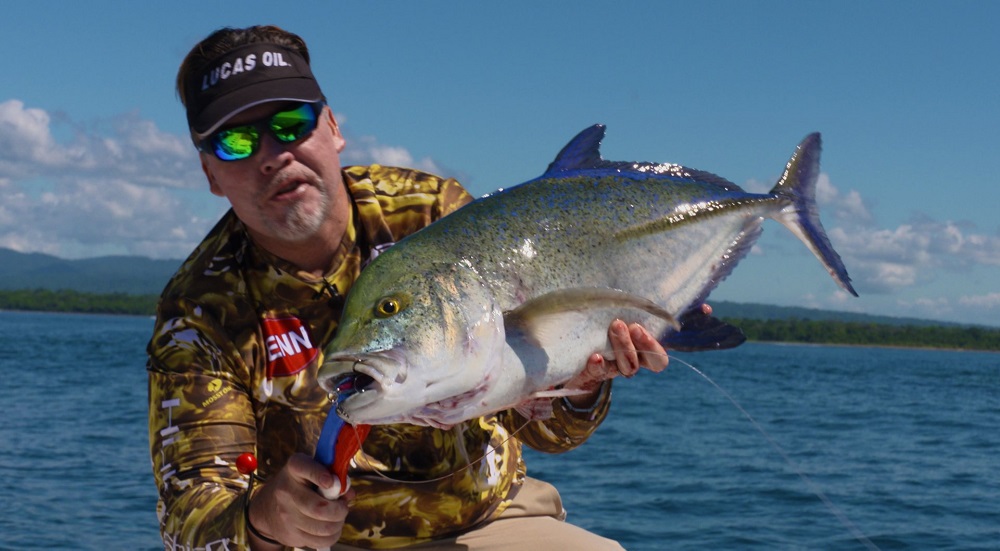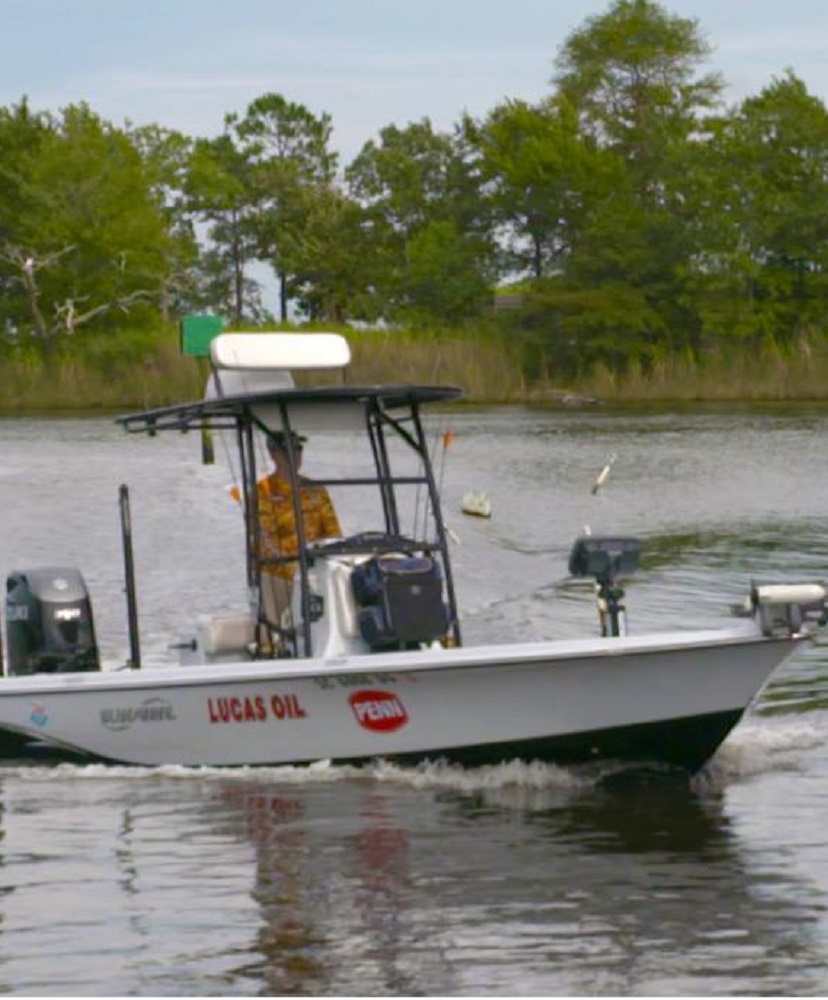 Anglers who fish in both salt and freshwater understand that saltwater fishing is a much more unforgiving environment. Few would argue with that. The water is bigger, the fish are meaner, and there are a host of challenges with the water itself. Salt is not a friend to our equipment and can quickly cause damage.
Anglers who fish in both salt and freshwater understand that saltwater fishing is a much more unforgiving environment. Few would argue with that. The water is bigger, the fish are meaner, and there are a host of challenges with the water itself. Salt is not a friend to our equipment and can quickly cause damage.
One angler who has years of experience in both types of water is the Mark Davis, the host of the BigWater Adventures television show. He grew up in the Midwest as a tournament bass angler and then shifted his focus to chasing giant fish across the world for his popular show that airs on the Outdoor Channel.
This gives him a unique perspective on both salt and freshwater fishing as he’s lived in both worlds.
READ RELATED: Lucas Oil for the Saltwater Angler
 More Wear and Tear
More Wear and Tear
How many hours do you have on your outboard engine? If you asked a saltwater and freshwater bass angler the same question, you would likely get vastly different responses to that question.
“Saltwater anglers can put 4,000 hours on an outboard in a few years. Many charter captains put 700-2500 hours on their engines each year,” Davis said. “Bass anglers are only a fraction of that. You don’t see used bass boats with that many hours on them for sale.
“When we are fishing offshore, we keep our engines running because we apply the ‘one less thing’ principle, it is one less thing that can go wrong. My Suzuki is flawless, but I do not want to be 15 to 20 miles offshore snapper fishing and not be able to get back in,” he said. “If we have a long run and then fish all day long, that could be 10 or 12 hours on the engine in one day, and that is every time out.”
These big engine hours numbers also open the door for more damage from bad fuel, and that is why Davis always fills up with Lucas Safeguard™ Ethanol Fuel Conditioner with Stabilizers to combat the dangers of ethanol.
Besides protecting against ethanol, it contains additives to prevent rust and corrosion and also cleans injectors, valve seats, and the entire fuel system.
More Gas Consumption = More Ethanol
Having an outboard running this much is obviously going to require more gas consumption. There is no way around that for saltwater anglers, and it is part of the game.
“My 350 horsepower Suzuki on my Blue Wave PureBay 2400 sips the gas, but in a day or two, it is nothing to run through 70 to 75 gallons of gas. That is a lot of ethanol that runs through the engine.
“Running one gallon of gas with ethanol through a fuel system isn’t going to do any damage, but once you’ve run 1000’s of gallons through it, the ethanol is going to start tearing it down,” he said. “The saltwater environment speeds up the wear and tear for everything exponentially.”
Corrosion and Electrolysis
Saltwater does a number on rods, reels, hooks and everything made of metal. Davis says to look no further than hooks used in the salt and then stored in a tackle box to see what it can do.
“If you’ve ever used a hook made for freshwater in saltwater, you know how quickly it can break down and corrode. Everything gets destroyed that much faster,” he said.
Besides just corrosion, electrolysis is another huge problem with metal in the saltwater and Davis said many of Lucas Oil’s products protect against both. For example, the M8 Synthetic SAE 75W-90 Marine Gear Oil contains Lucas' exclusive blend of synthetic additives to protect against these dangers.
Rust is a common type of corrosion and it happens often in saltwater. Possible current between the objects causes electrolysis. Both are bad, and both are a big problem for metal objects in the salt.
“Think of the metal components in your engine. The prop to the prop shaft is one big problem area. So is your lower unit and in the power head,” he shared. “Everything is multiplied in saltwater, plus you are running it much more which speeds up the damage.”
Davis pointed to the unique blend of additives that they use for many different products as a way that Lucas Oil helps to protect against electrolysis and corrosion that is common in the saltwater world.
There are many differences between freshwater and saltwater, but one common theme is the need to do everything you can to protect against ethanol. We all spend good money on our equipment, and there is no reason to skimp on the right protection and chances are, Lucas Oil makes something that can help.


 Advertising
Advertising